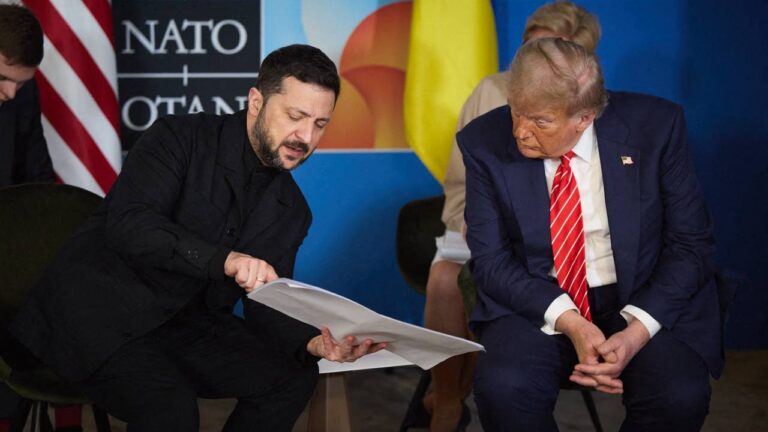When summer kicks in, it’s also time for ‘Rule of Law’ to take centre stage: ever since the European Commission’s first report in 2020, this has become sort of a tradition. This year is no different. On 5 July, as scheduled, the Commission released its reports, including the highly anticipated country chapter on Hungary.
Many hoped that the Commission would acknowledge and appreciate the efforts made by the Hungarian legislature, in collaboration with the Hungarian government, to reform the country’s legal system. Some even wished for a more balanced portrayal of Hungary, in contrast to the prevailing negative image that has been dismissed by certain actors of the European public discourse as ‘Hungary bashing‘.
Browsing through the report, all of this appears to be ungrounded optimism.
The framing of the document starts right from its Abstract, subtly
suggesting that Hungary not only falls under the scope of the Article 7 procedure triggered by the European Parliament, but is also viewed as a country under the guardianship of the Brussels bureaucracy.
However, let’s be fair and not dwell on this point for now: the Article 7 procedure is indeed underway, while the process remains largely within the realm of diplomatic exchanges characterised by dialogue and symbolic gestures. It is important to note that this traditional approach serves as a very important peacekeeping ‘buffer’, a ‘quasi solution’ that has not escaped the attention of the European Parliament, where frustration mounts as the body seeks more decisive action against the current Hungarian government.
Anyhow, the report doesn’t stop there; it delves into even more contentious aspects worth discussing. Now, let’s momentarily set aside the allegations surrounding the European Commission’s repeated mentions of specific rule of law anomalies, as some argue that these stem from a perceived lack of understanding regarding the peculiarities of the Hungarian legal system. The problem, apparently, starts with the notion that
the Commission does not even want to understand the Hungarian legal system.
As the saying goes, ‘the devil is in the details,’ and this notion holds true for the 2023 Hungarian country report. A closer examination of the report unveils the intriguing interplay between the main text and the footnotes, shedding light on interesting revelations. Here comes a fine recipe from the ‘Brussels Cookbook’:
Claim:
’Concerns have been raised regarding the lack of transparency of case allocation in lower courts. The case allocation schemes in the five regional appeal courts, the 20 regional courts and the 114 district courts are established by the court presidents.’
Footnote support:
’In the case of district courts, the case allocation scheme is established by the president of the regional court. The judicial council of each court gives a non-binding opinion (contribution from Alapjogokért Központ for the 2023 Rule of Law Report, p. 13).’
Claim:
’The law provides for a wide range of exceptions to the rules without establishing guarantees against their inappropriate application.’
Footnote support:
’Contribution from Amnesty International Hungary for the 2023 Rule of Law Report, p. 14; contribution from Eötvös Károly Policy Institute for the 2023 Rule of Law Report, p. 14; contribution from the Hungarian Helsinki Committee for the 2023 Rule of Law Report, p. 14. (…) European standards require that the allocation of cases within a court follow objective pre-established criteria in order to safeguard the right to an independent and impartial judge.’
Claim:
’European standards require that the allocation of cases within a court follow objective pre-established criteria in order to safeguard the right to an independent and impartial judge.’
Footnote support:
’Committee of Ministers of the Council of Europe Recommendation CM/Rec(2010)12, para. 24’
Claim:
’Stakeholders note that case allocation schemes can be modified at any point of time; according to stakeholders, such modifications are carried out on a regular basis, sometimes even from one day to another.’
And now, ‘miracle of miracles’, here comes the footnote support:
’Contribution from Amnesty International Hungary for the 2023 Rule of Law Report, p. 14; contribution from Eötvös Károly Policy Institute for the 2023 Rule of Law Report, p. 14; contribution from the Hungarian Helsinki Committee for the 2023 Rule of Law Report, p. 14.’
European Commission on Twitter: “The rule of law is one of the fundamental values upon which the EU is built. Today we’ve published the fourth edition of the Rule of Law Report.65% of last year’s recommendations have been addressed, showing important efforts are ongoing in the EU countries.#RuleOfLaw / Twitter”
The rule of law is one of the fundamental values upon which the EU is built. Today we’ve published the fourth edition of the Rule of Law Report.65% of last year’s recommendations have been addressed, showing important efforts are ongoing in the EU countries.#RuleOfLaw
The example above highlights an interesting ‘routine’:
a) In a fascinating turn of events, the European Commission unveils a ‘devastating’ statement concerning Hungary, only to subsequently uphold an illusion of objectivity;
b) then supports its claim by referring to data provided by a prominent conservative think tank (in this case, the Center for Fundamental Rights),
c) the European Commission follows up with yet another ‘devastating’ statement, bolstered by the viewpoints of critics known for their consistent and often politically motivated opposition to the Hungarian government.
In an effort to heighten the intensity, the European Commission adds some extra spice to these statements by incorporating an official document from another EU body—in this case, the Committee of Ministers of the Council of Europe—only to be followed by yet another opinion by one of the constant critics of the Hungarian government.
The Commission follows a similar strategy when crafting another ‘devastating’ statement later on:
’Smear campaigns continue to exert undue pressure on judges, affecting their freedom of expression. Stakeholders report that in autumn 2022, pro-government media launched smear campaigns against two judges—members of the National Judicial Council.’
Footnote support:
’Contribution from Eötvös Károly Policy Institute for the 2023 Rule of Law Report, p. 19; contribution from Liberties for the 2023 Rule of Law Report, p. 4. In August 2022, in a statement published by The Guardian, the spokesperson of the National Judicial Council voiced his concerns over government overreach aimed at swaying courts; his statements triggered severe and defamatory attacks against him from pro-government media. In October 2022, further attacks were launched by pro-government media and government officials against the National Judicial Council’s spokesperson and its member responsible for international relations. Their independence was questioned for meeting the US ambassador in their capacity as representatives of the Council, to discuss the situation of judicial independence in Hungary.’
Of course, the alarming nature of a situation where the ambassador of a country extends an invitation to two judges for questioning (interrogation by the way?) is beyond doubt. This indeed might have a compromising effect on the crucial principle of judicial independence. Sadly, but unsurprisingly, this case is not mentioned in the footnotes of those statements by the European Commission providing information on the public sentiment towards the independence of Hungarian judges (relying on public opinion polls conducted by using a methodology that has also been controversial).
According to the official communication,
the primary objective of the European Commission in publishing these reports is to diligently monitor the state of rule of law across the European Union member states.
Furthermore, the reports aim to identify and highlight issues and areas requiring improvement that directly pertain to the fundamental principles of the rule of law.
But still, the European Commission is an institution comprised of non-democratically elected bureaucrats whose politicisation appears to intensify over time, with each passing day, year, and political term. As long as reports of this calibre continue to emerge from the halls of Brussels, the rule of law reports seemingly serve no purpose other than the deliberate construction of well-tailored political narratives that serve the short-term goals of the Commission.
As it is stipulated by the Treaty on European Union, the Union and the Member States shall mutually respect and assist each other in accordance with the principle of loyal cooperation. Well, the 2023 Rule of Law report on Hungary tends to paint a different picture…
Related articles:








